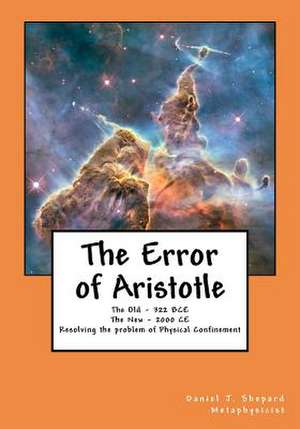The Error of Aristotle
Autor MR Daniel J. Sheparden Limba Engleză Paperback
Preț: 56.92 lei
Nou
Puncte Express: 85
Preț estimativ în valută:
10.91€ • 11.45$ • 8.100£
10.91€ • 11.45$ • 8.100£
Carte disponibilă
Livrare economică 02-16 ianuarie 25
Preluare comenzi: 021 569.72.76
Specificații
ISBN-13: 9781463599706
ISBN-10: 1463599706
Pagini: 128
Dimensiuni: 178 x 254 x 7 mm
Greutate: 0.24 kg
Editura: CREATESPACE
ISBN-10: 1463599706
Pagini: 128
Dimensiuni: 178 x 254 x 7 mm
Greutate: 0.24 kg
Editura: CREATESPACE
